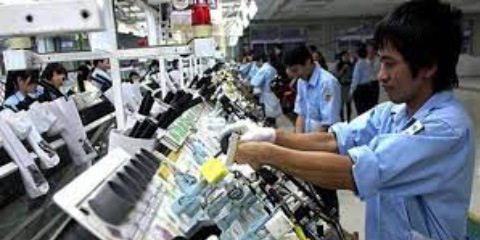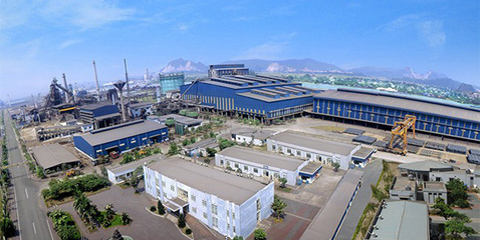Want to be in the loop?
subscribe to
our notification
Business News
WHAT STANDS BEHIND THE EXPORT-IMPORT RECORD OF $475 BILLION
Vietnam’s export-import turnover in the first 10 months of 2018 nearly reached $400 billion, and the figure is expected to exceed $475 billion by the end of the year, which means it is going to set a new record for trade in goods in Vietnam.
2018’s economic highlights
The buzzing export-import activities were one of the most notable features of the Vietnamese economy in the past 10 months as well as the whole year.
As reported by the General Statistics Office of Vietnam, in the first 10 months, the country earned $394 billion from export-import transactions, as much as 2017’s full-year turnover. Specifically, total export revenue reached $200.27 billion and import revenue accounts for $193.84 billion, showing respective growths of 14.2 and 11.8 per cent on-year.
There are two months left of 2018, hence, the Ministry of Planning and Investment has forecast that the figure of $475 billion is well within reach. In addition to the high export-import turnover, Vietnam might hit a record in trade surplus this year.
Currently, exports have exceeded imports by $6.4 billion. Due to the usual increase of imports at the end of the year due to the shopping season for the Lunar New Year, exports usually slow down and there might be a possibility of trade deficit. However, according to the Central Institute for Economic Management (CIEM), Vietnam’s trade surplus might widen to $5 billion this year, which is the largest value so far.
In October 2017, Vietnam was forecast to reach $400 billion in export-import for the whole year. In mid-December 2017, the General Department of Vietnam Customs organised a ceremony to celebrate the revenue officially hitting $400 billion. At the end of 2017, the total trade balance was $425 billion. This year, the turnover is estimated to be $475 billion. If Vietnam can maintain this speed, the number will pass $500 billion by quite a large margin next year.
Alarms behind record figures
As the global commodity markets are wrestling with the impact of the US-China trade war and protectionism, it is particularly impressive that Vietnam could reach $475 billion in total export-import revenue, the MPI emphasised in its Report on 2018 Socio-Economic Situation.
According to the MPI, Vietnam’s exports are posting positive improvements by lowering the value of raw material exports while increasing processed and industrial products export value, following theStrategy on exports and imports for 2011-2020, with vision to 2030, paving the way for Vietnam to penetrate global production and supply chains.
On the other hand, head of the Petition Committee Nguyen Thanh Hai expressed concerns over the country’s export growth relying on global demand, while the majority of materials used to respond to this demand are imported from other countries.
“This is one of the reasons behind the low added-value, which means the country’s actual earnings are far lower,” she added.
Hai proposed the government and related authorities to work towards “more innovative solutions.”
According to Hoang Quang Ham, congressman from Phu Tho province, the inflated value of export-import brings about two issues.
First, Vietnam is generally posting a trade surplus, yet most of the gains are attributed to the FDI sector, while the domestic sector is still running a trade deficit.
“Foreign-invested companies make trade surplus, therefore, they own much of the added-value. We only take a humble part in export manufacturing, and as a result, we earn less.”
Second, as export-import value surges, the Vietnamese economy is becoming more and more open, which also means that it can easily be hurt by global economic fluctuations. Currently, the total export-import revenue in Vietnam is double the country’s GDP.
In fact, this is not the first time these concerns have been raised. Vietnam is admitted to be frail in commodity trade, due to the heavy dependence on raw materials for importation, largely relying on the FDI sector and easily wrecked by global economic fluctuations.
One of the main concerns currently is the escalating US-China trade war. According to Ha Si Quang, congressman from Quang Tri, the trade war is an external factor that may strongly affect Vietnam because both parties are top export-import markets for Vietnam.
Thus Vietnam needs to prepare comprehensive solutions to tackle potential negative impacts and solidify its economic base to enjoy the strong growth of trade activities in the future.
Source: VIR
Related News

CUSTOMS BUDGET REVENUE EXPERIENCES 3% DECLINE IN Q1
Vietnam’s import and export value reached a total of US$145.59 billion in the first quarter (Q1) of 2024, marking a year-on-year growth of 18.2%. However, the customs budget revenue saw a 3% year-on-year decline, amounting to VND71,520 billion in the quarter, thereby achieving 19.1% of the full-year target.

RAPID LAW IMPLEMENTATION MAY PROPEL MARKET FORTUNES
“Investors and developers are looking forward to the implementation of the new law, which will remove obstacles for a range of projects that are struggling due to stalled procedures and lack of legality. For them, the earlier the better,” he said.

NATION URGED TO BUILD ON ECO-IP MODEL
Industrial parks (IPs) involved in an initiative that aims to help push them into the realm of being classed as eco-parks have seen improvements across a string of indicators, according to a review event in Ho Chi Minh City last week.

YEN LU INDUSTRIAL PARK: NEW DESTINATION FOR INVESTORS
Bac Giang is a destination chosen by many domestic and foreign investors thanks to its locational advantages and its most opening and favorable investment policies. Assisted by local authorities, Capella Land Joint Stock Company has effectively invested in industrial zones, especially Yen Lu Industrial Park - a new destination for investors, to contribute to the province’s success in investment attraction.

OPTIMIZING LEGAL AND REGULATORY FRAMEWORKS FOR EFFICIENT PUBLIC INVESTMENT DISBURSEMENT
According to the Ministry of Planning and Investment, a 1% increase in public investment raises GDP by 0.058%, and each VND1 disbursed stimulates an extra VND1.61 from the non-state sector. However, plan implementation often falls short at around 80% annually, despite government efforts.

NATION URGED TO BUILD ON ECO-IP MODEL
For the 2020-2024 project, three IPs were selected for the transformation including Deep C Industrial Zones in the northern city of Haiphong, AMATA City Bien Hoa in the southern province of Dong Nai, and Hiep Phuoc IP in Ho Chi Minh City. Over the last four years, the level of compliance with the international framework on eco-IPs for all pilot complexes has increased in terms of environment, economy, and management.
































